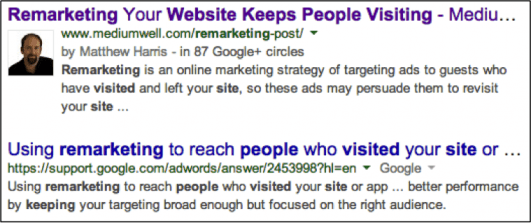Blogging
“Content” has become a buzzword for the information shared on websites – and includes much more than written words. Content encompasses text, photos, videos, and more. One content area that’s rapidly becoming a powerful way for businesses to reach audiences is a business blog. This enables companies to reach potential customers in a way that’s less formal than a website but more formal than social media. It’s about providing useful information or opinions on a consistent basis, putting a face to it (could be the company’s owner, a technical expert, or other passionate employee) so readers will become loyal visitors.
Should My Business Blog?
When blogging for your business, this simple strategy works best: provide good, business-related content that will attract your target customers, on a regular basis. When conceptualizing the blog, choose topics associated with your business, preferably that you and/or the author(s) are passionate about. This gives the authors of your blog posts plenty to write about. Don’t be afraid to explore different topics in your posts, replica watches uk as long as they relate to your main theme. As you develop your blog’s voice, readers will become familiar with what it has to offer.
The type of content and frequency may vary by business, but here are some general questions and guidelines for anyone considering launching a business blog:
- Is blogging right for your business? It could be a very good fit if your target audience is already online, looking for content such as “how to” info, industry updates, product reviews, expert opinions, etc.
- What topics should the blog cover? It’s best to be educational, thought-provocative, and maybe even inspiring, while avoiding politics or other sensitive topics that could invite unwanted controversy and push readers away. Topics should be centered on the type of info most compelling to your target audiences. Keyword and informal marketing research can help identify good topics.
- What should your tone be? Many blogs lean towards informal (it’s engaging and often easier for an author who is not a professional writer) yet authoritative, though it depends on your audience. Just make sure it comes across as ‘human’ and include a photo of the blogger if possible.
- What is the ideal length for a blog post? There is no set answer to this question. It could be as few as 100 words or much longer. Make it what’s manageable for the author(s) to handle and long enough to cover the topic, but not so long that it’s too time-consuming to read.
- How often will you blog? Be sure to organize an editorial calendar and be consistent, whether it’s once a week, a month, a quarter, etc. While a blog that’s strong and consistent can attract loyal followers, a blog that languishes could discourage customers.
- How will your blog connect with other online marketing activities? Your blog posts should tie into your other online endeavors, such as social media. Craft a strategy for cross-promoting and repurposing not just your blog posts, but all content you create.
- Will you write it all yourself? It can be written by you and/or a colleague, an outside company (such as Medium Well), or both.
Own Your Blog
A major part of blogging is giving it a firm identity connected to your business, which helps make it a voice of authority in your field. Blogs should have their own domain name or be part of your company’s website, and not exist on a separate social site such as Tumblr (ex:yourname.tumblr.com). This makes it more professional-looking and helps boost your search engine rankings. Another way to make your blog posts stand out is to use Google Authorship, which makes a small image of yourself appear next to your posts in search results (example below).
Blog Wellness Tip: Keep content visible after it’s published. Create archives so all past posts are within reach for users, with publishing dates included. This will contribute towards your search engine rankings and online legitimacy.
Connecting with Your Audience
Blogging gives businesses a great way to talk with new and existing customers. Blogs may or may not include the ability for people to comment – it depends on the business, the nature of the content, and whether someone can monitor and respond in a timely manner. The tools are easy enough to use that authors can post then respond to questions and comments in real-time. A comment section must be moderated or not included at all.

